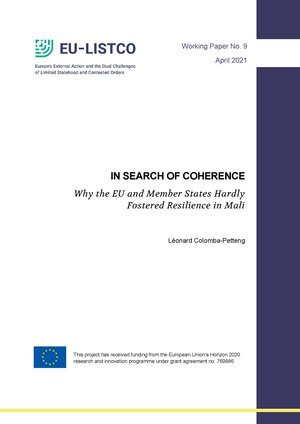
This paper capitalizes on EU-LISTCO’s analytical framework to assess the preparedness of the European Union and Member States in addressing situations of limited statehood and contested orders in Mali. The first part of the working paper contextualizes the risks and challenges in Mali prior to the military coup which occurred in 2012. It identifies the fall of President Amadou Toumani Touré as the tipping point which led to the dramatic deterioration of the situation in Northern Mali. This part also unravels the components of resilience in Mali according to the typology suggested by Thomas Risse and Tanja Börzel (social trust, legitimacy of governance actors and institutional design). The second part focuses on the policies undertaken by the EU and three Member States (France, Germany, Italy). It shows that France, and to a lesser extent Germany, demonstrated a genuine capacity and willingness to engage in the crisis resolution process and foster resilience, even though some divergences have appeared. Other Member States, such as Italy, however, proved to be far less enthusiastic until the 2014 migration crisis which involved their national territory. The third part of the working paper identifies the persistent deficit of policy coordination and the existence of local rent-seeking mechanisms as spoiling factors which affect the efforts shown by EU and selected Member States to foster resilience in Mali.